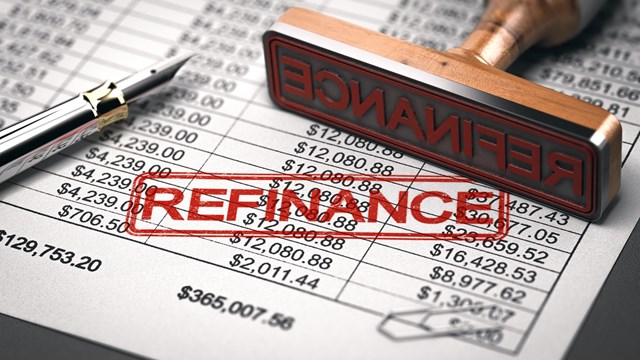With all of the negative headlines involving multi-national corporations over the past few years, fraud has been elevated to the forefront of financial topics. This is the theme of a new accounting pronouncement that becomes effective this year. As a result, you can expect to see some fairly substantial changes in the way your accountant performs your building's audit.
In the interest of helping to simplify compliance by your board and managing agent with the required changes, I would like to offer insight into some of the procedures that you will be encountering this year. There are some important, easy-to-adapt procedures the board should consider to protect against fraud.
Entitled Statement on Auditing Services #99 (SAS#99), this standard goes well beyond any accounting pronouncement that came before. It's commonly said that, "when the pendulum swings, it generally swings too far," and so it is here. Instead of allowing the accountant to determine what needs to be done in order to comply with this standard, the pronouncement spells out specific procedures that must be performed. These procedures include focused questions to the many different people involved in your building. The entire engagement team (which consists of a junior or senior accountant who does the actual investigation and paperwork, a quality control professional not directly involved with the client who oversees the accountant's work, and the engagement partner, who is generally a senior partner with the firm and who acts as point-man between client and team) is required to meet and determine ways you, your building staff and managing agent could possibly commit fraud. Then, they are required to design audit procedures that would uncover the types of fraud they could envision.
As I mentioned before, in my opinion, this seems to have gone too far. Accountants representing cooperatives and condominiums have already adapted to several publicized frauds involving cooperative and condominiums in the last two decades. These frauds came to light as a result of investigations by the New York State Attorney General into collusion with contractors. Illegal activity generally originated in the form of kickbacks to employees or managing agents. Even before SAS#99, accountants developed procedures to help uncover potential fraud.
My opinion notwithstanding, let's look at what you can expect in the near future and consider what you can do to prepare your building's team.
Questionnaires and representations are an integral part of all audits, therefore the expanded use of these audit tools should not cause any concern. However, specific questions will be asked about fraud, whether it is occurring, or how someone could perpetrate fraud at your building. The questions are required to be posed not only to the management executive or the board, but also to the manager's assistant(s) and lower level accounting personnel. These questions are bound to cause a stir. The idea is to dig deep into the pool of people who help run your building and ask relevant questions. This concept originates from investigations of successful frauds.
We suggest there be an open discussion with the building and managing agent staff alerting them to the possibility of these questions. Resolve their concerns by reassuring them that it is not only in the building's best interest, but also in their best interest to respond. Assure them that the questions are not as a result of a specific investigation, but rather as a result of a new mandatory accounting procedure that requires these questions be asked.
One thing that boards can do is to take the initiative and prepare themselves by evaluating their own internal control and operating procedures designed to guard against fraud. Generally, it is the internal accounting control structure of the managing agent that the board of directors relies upon to guard against fraud losses. We have always advocated that an involved board offers the most protection against fraud. Thus, assuring the role of the board of directors in the internal control process is its most important defense against fraudulent activity.
One of the most basic internal controls is making certain that at least one board member performs a detailed review of the management report provided by your agent on a monthly basis. We do realize that board members are all volunteers and must make the time to participate in board matters. Most boards delegate the detailed review of management reports to one member or to a committee, usually the treasurer or the finance committee. However, as officers may change from year to year, it is the responsibility of the entire board to ensure the procedure is uniformly performed. It is important to remember, that it is generally the uninvolved board that is singled out by a fraud perpetrator.
Rather than offer a laundry list of internal controls you can simply apply, I'd like to explore several of the general risks faced by buildings and offer ideas for controls designed to reduce these risks.
Amounts due from owners - like maintenance, common charges, and various fees - are secured by their units. It is extremely difficult to steal a piece of New York real estate, so the risk of fraud in these areas is minimal. Because of this, we will concentrate on the cash in bank accounts as the most susceptible asset of your building.
The most important basic control for a building's cash is that managing agents utilize a lock box to account for the cash received by the corporation. This leaves only miscellaneous cash receipts such as transfer and application fees potentially vulnerable to misappropriation. Again, member(s) or a committee of the board of directors are generally involved in the processes that generate these fees, so verification of these receipts can easily be incorporated into the board's procedures. Once cash coming in has controls in place, it leaves the hiring of vendors and expenses as the areas most vulnerable to fraud.
This brings us back to the Attorney General's investigations. You may recall that the frauds discovered involved kickbacks and preferred vendors. These are easy to conceal, but there is a simple board operating procedure that can significantly reduce the risk. Knowledge of how these schemes were perpetuated will help you in designing controls to reduce that risk. These schemes usually involve a rotation system whereby conspiring vendors submit exaggerated proposals above a preset amount based on the assurance they would be in line to be a favored contractor in the future. This means that all of the bids will be higher than the contractor who is being favored to get the job. It also means that the favored contractor can submit a bid in excess of what it should be and still be assured of getting the job. This allows for additional profit, which allows for payment of the kickback. The building would pay inflated prices for the job or goods and services. In most cases, it was the individual employed by the managing agent who was responsible for the building, or the building superintendent who had authority to choose the vendor that allowed this fraud to occur.
Other adaptations of this type of fraud are: 1) hiring a vendor by obtaining only one or no proposal, 2) using dissimilar vendors which guarantees the favored vendor would be the only one qualified for the work and therefore would be awarded the contract, 3) altering or submitting fictitious proposals to direct the board to the favored vendor.
One of the best internal controls that the board may utilize is to independently obtain one proposal for all significant work outside the managing agent. One source for service providers and vendors would be
Controlling the expenditure process can be more time-consuming. Short of endeavoring to have members of the board of directors sign all checks, board involvement in the expenditure process may be difficult. Trusting the managing agent and its controls are necessary. In lieu of the trust placed in the managing agent and its controls, and in the absence of board involvement, a monthly review of bank statements and reconciliation is vital. The bank reconciliation is a common place that cash fraud is uncovered. Assuring a watchful eye over this process will go a long way towards protecting your building. When internal controls are in place and followed without exception, the risk of fraud actually occurring can be significantly reduced.







Leave a Comment